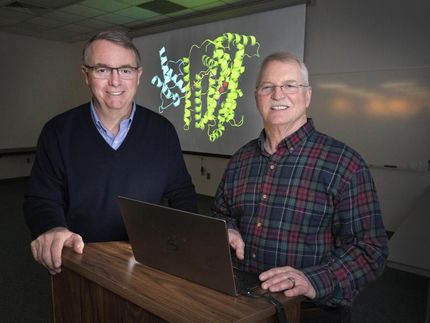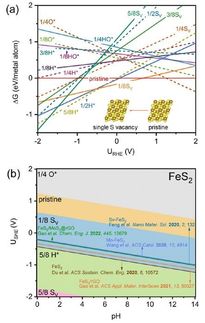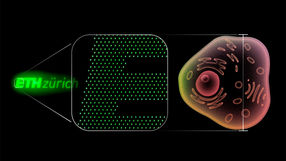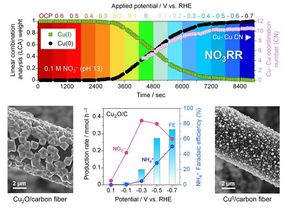Molecular fuel cell catalysts hold promise for efficient energy storage
Advertisement
In the quest for better, less expensive ways to store and use energy, platinum and other precious metals play an important role. They serve as catalysts to propel the most efficient fuel cells, but they are costly and rare.
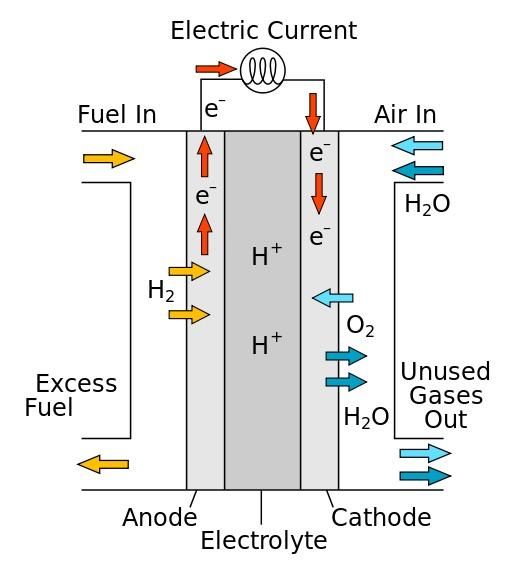
A team of chemists from the University of Wisconsin-Madison has introduced a new fuel cell catalyst approach that uses a molecular catalyst system instead of solid catalysts.
Stahl Group/University of Wisconsin-Madison
Now, a metal-free alternative catalyst for fuel cells may be at hand. In a study published July 15 in ACS Central Science, a team of chemists from the University of Wisconsin-Madison introduces a new approach that uses a molecular catalyst system instead of solid catalysts. Although molecular catalysts have been explored before, earlier examples were much less efficient than the traditional platinum catalyst.
A fuel cell converts chemical energy into electricity by reacting hydrogen and oxygen at two different electrodes. A catalyst makes the reaction more efficient.
UW-Madison chemistry Professor Shannon Stahl and lab scientist James Gerken took inspiration from their group's previous work with catalysts that use oxygen in applications for the chemical industry. They noticed a striking similarity between these aerobic oxidation reactions and the oxygen reaction in fuel cells and decided to see if they could apply a similar approach to a fuel cell.
The new catalyst is composed of a mixture of molecules called nitroxyls and nitrogen oxides. These molecular partners play well together; one reacts well with the electrode while the other reacts efficiently with the oxygen.
"While this catalyst combination has been used previously in aerobic oxidations, we didn't know if it would be a good fuel cell catalyst," Stahl says. "It turns out that it is the most effective molecular catalyst system ever reported."
Because the approach involves chemical reactions between gases, liquids and solids, moving from concept to demonstration was no small feat. Gerken spent months studying and optimizing each component of the setup they had envisioned before testing everything in a model system.
"This work shows for the first time that molecular catalysts can approach the efficiency of platinum," Gerken says. "And the advantage of molecules is that you can continue to modify their structure to climb further up the mountain to achieve even better efficiency."



